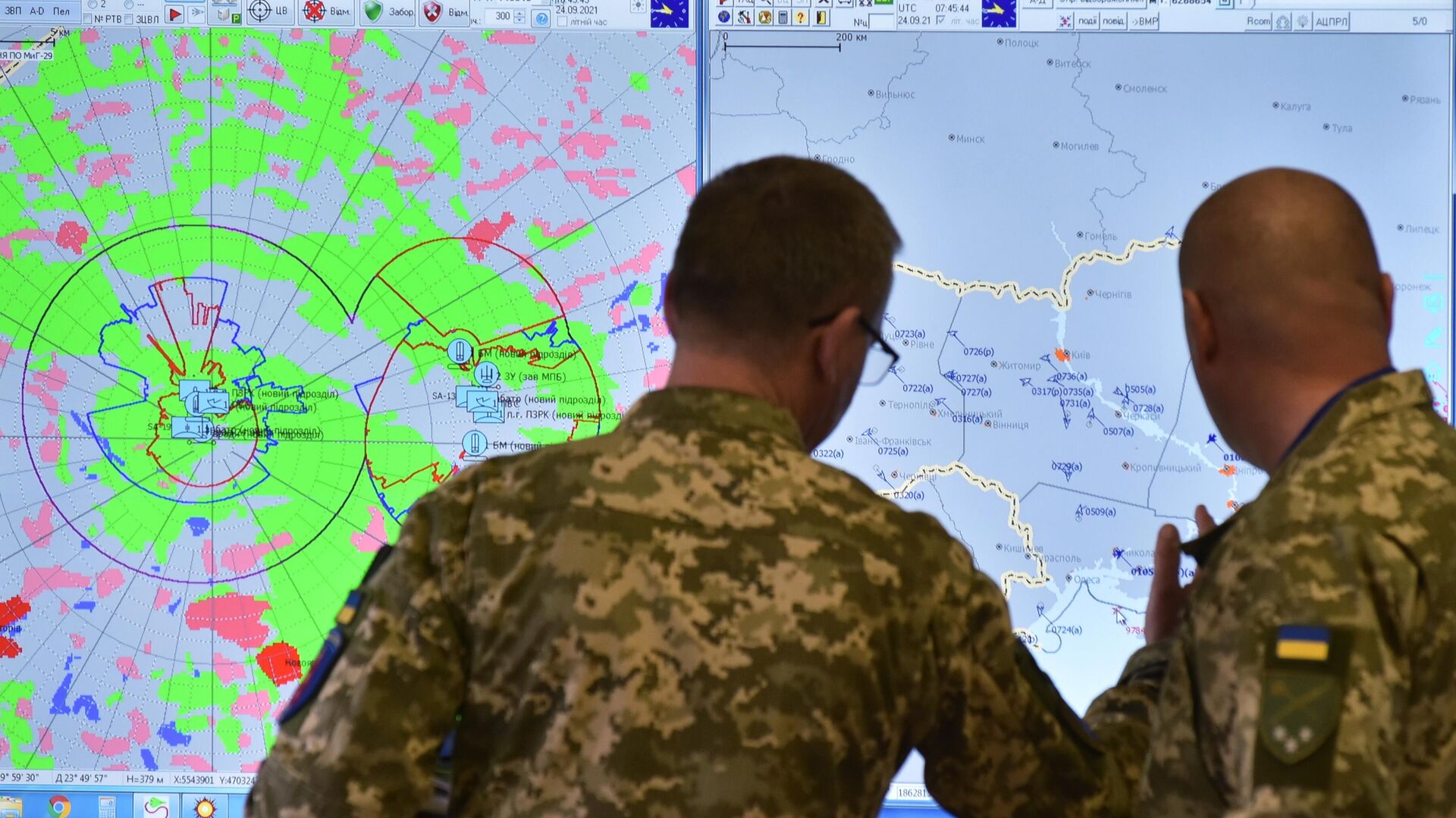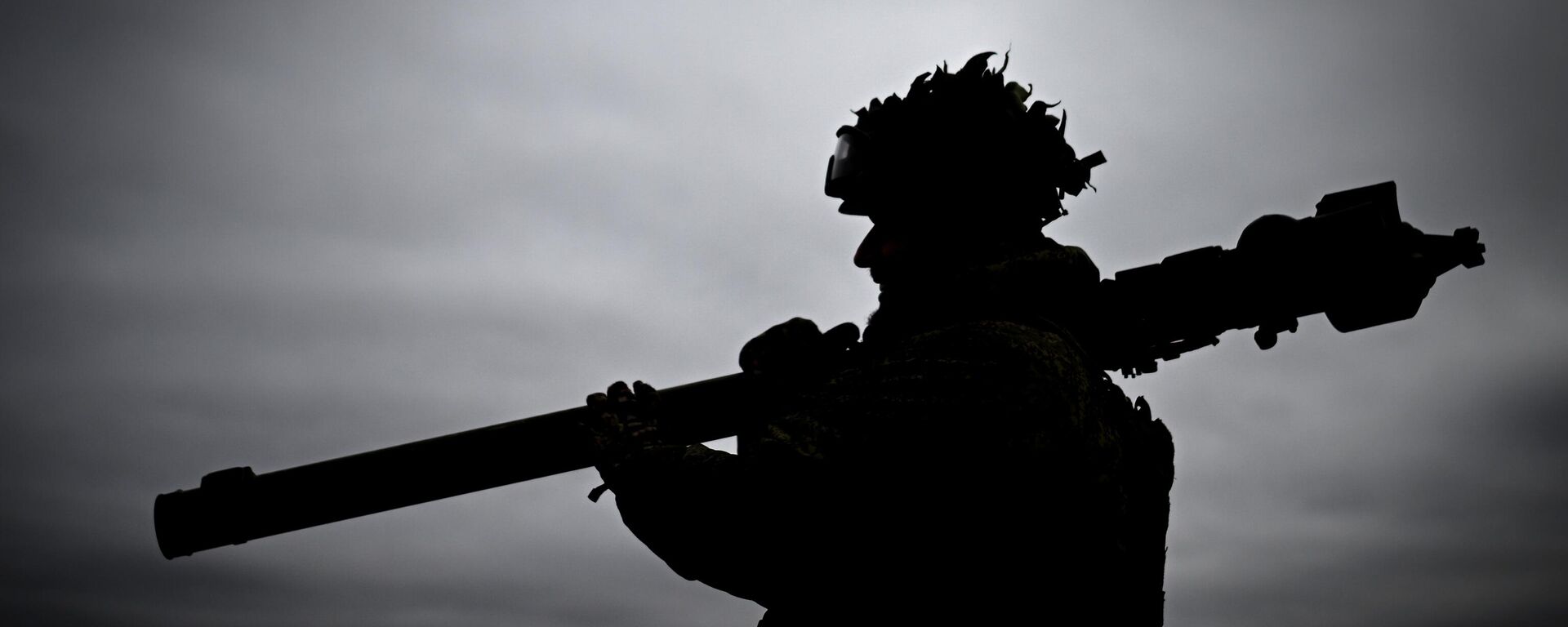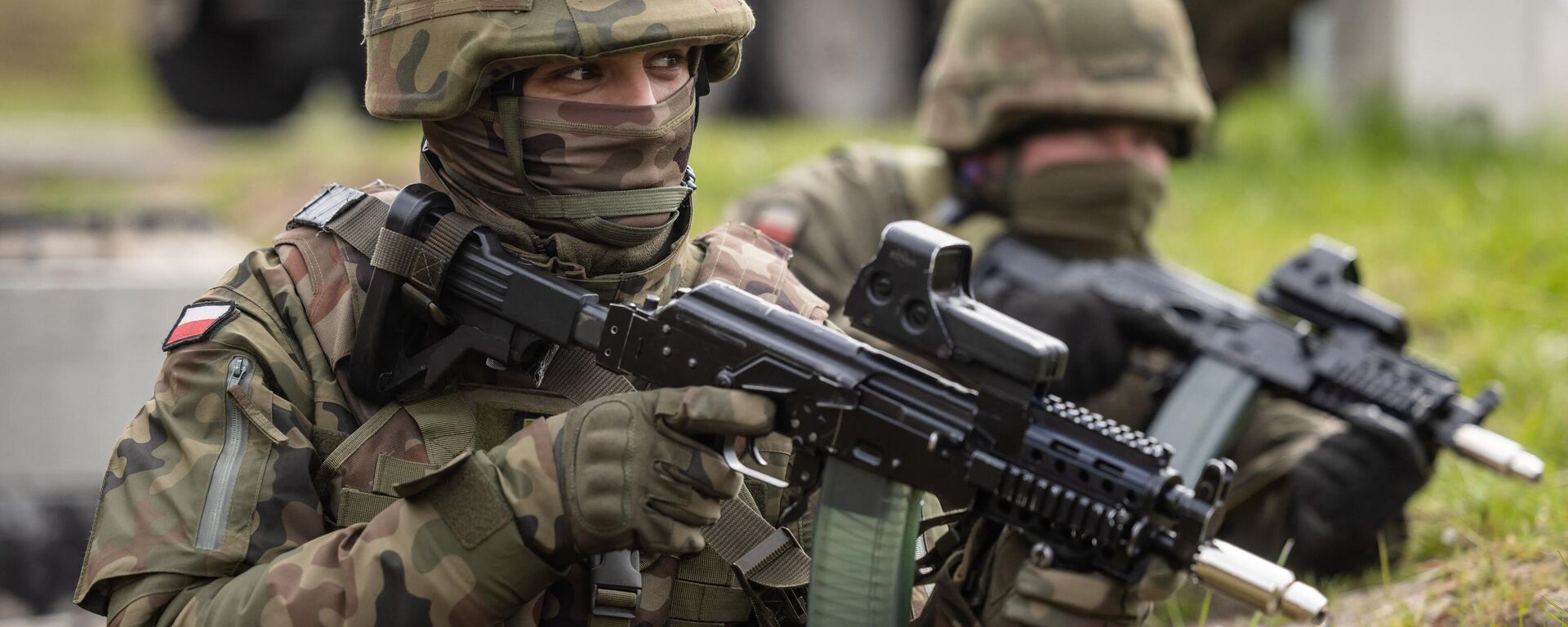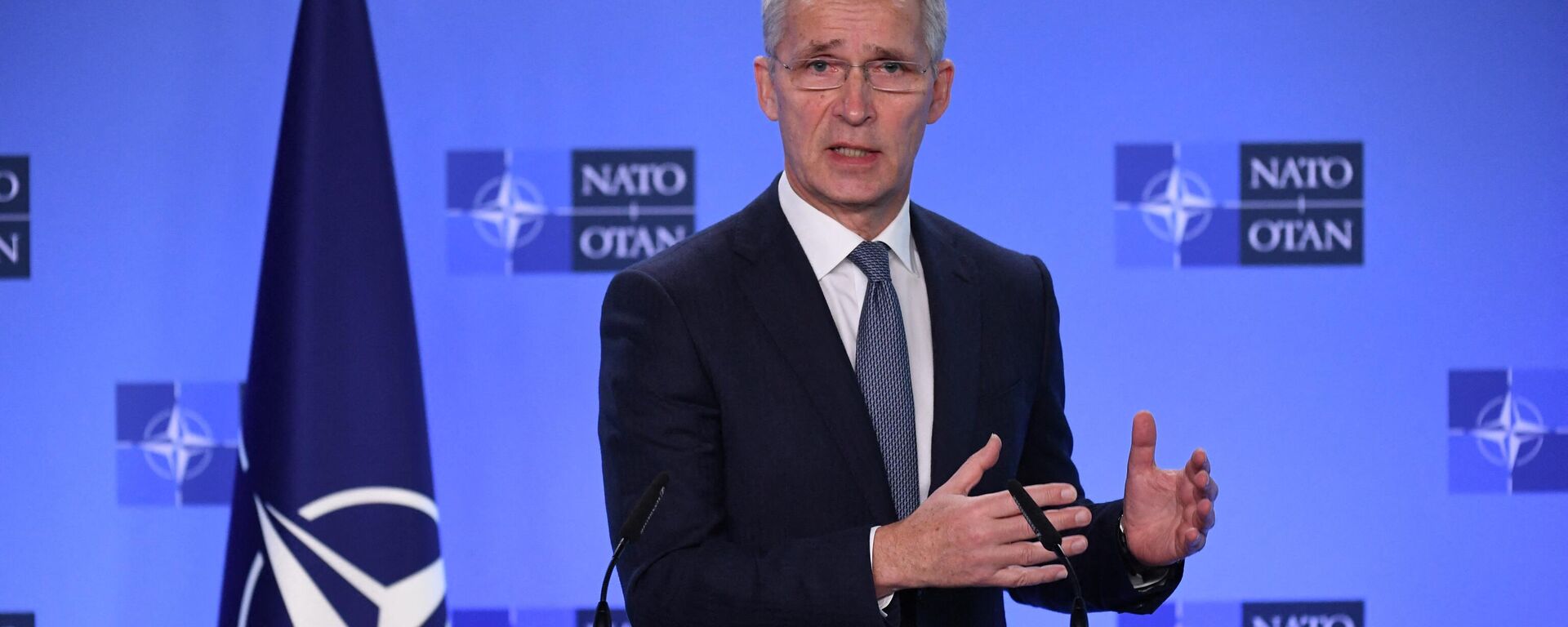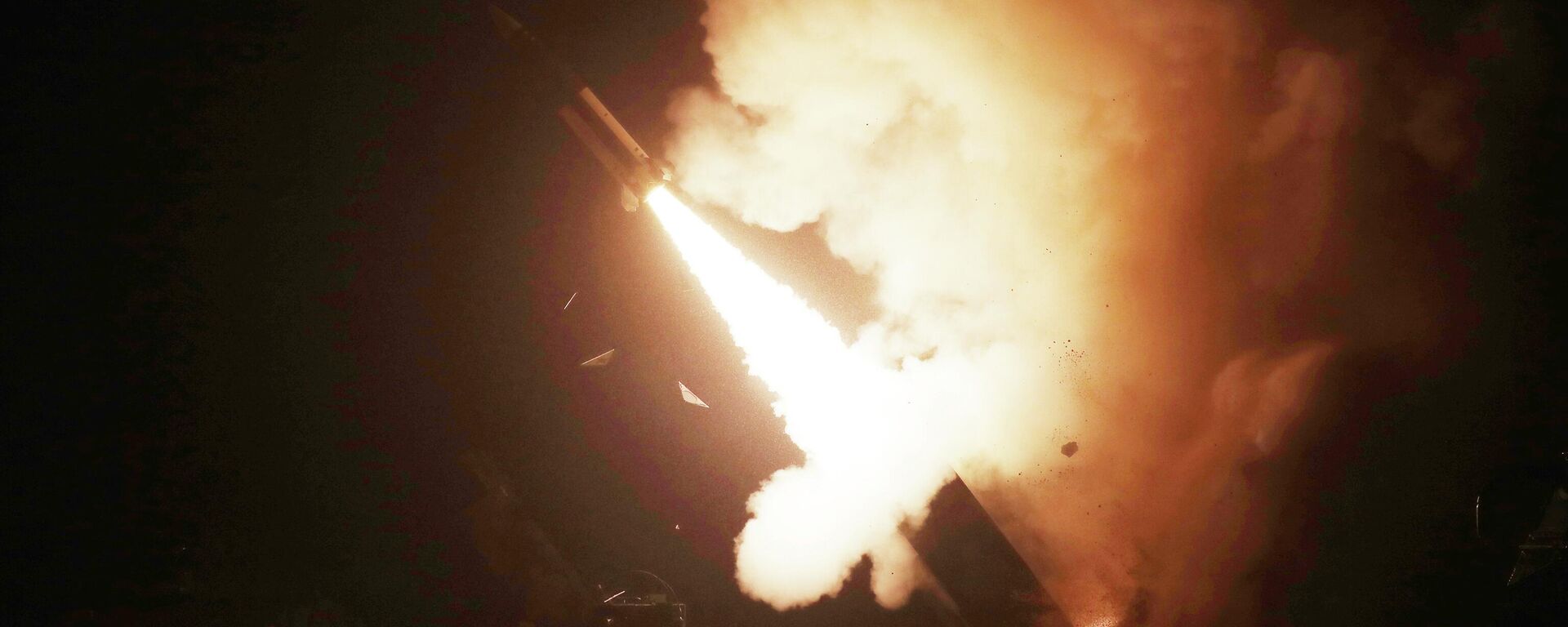https://sputnikglobe.com/20240623/why-article-5-wont-save-ukraine-if-kiev-joins-nato-1119079025.html
Why Article 5 Won't Save Ukraine if Kiev Joins NATO
Why Article 5 Won't Save Ukraine if Kiev Joins NATO
Sputnik International
The Kiev regime still strives to join NATO but its membership in the alliance wouldn't guarantee it more assistance then it enjoys today, even if the much-touted Article 5 is invoked.
2024-06-23T22:04+0000
2024-06-23T22:04+0000
2024-06-24T01:05+0000
nato
world
joe biden
rand paul
george w. bush
ukraine
russia
kiev
article 5
us
https://cdn1.img.sputnikglobe.com/img/07e8/01/15/1116301682_0:13:3595:2035_1920x0_80_0_0_cbf5abe9702e3b3c488c253f485177bc.jpg
As NATO members prepare to celebrate the alliance's 75th anniversary in Washington next month, the US and key allies including the UK and Germany are debating how strongly to commit to Ukraine's NATO bid. Washington and Berlin rejected a European plan to provide Ukraine with an "irreversible" path to the organization earlier this week, instead offering a "lighter commitment" with no concrete timeline, according to British newspaper The Telegraph.The Kiev regime has repeatedly urged the West to accept it into NATO. However, even if Ukraine were admitted, it would not be guaranteed NATO boots on the ground or greater assistance than it already receives.What's Article 5 Really About?It is widely believed that Article 5 of the North Atlantic Treaty unquestionably commits NATO members to provide military support should one of them be attacked. In reality it doesn't, according to US academics, legal experts and lawmakers.Article 5 reads: "The Parties agree that an armed attack against one or more of them . . . shall be considered an attack against them all and consequently they agree that, if such an armed attack occurs, each of them, in exercise of the right of individual or collective self-defense recognized by Article 51 of the Charter of the United Nations, will assist the Party or Parties so attacked by taking . . . such action as it deems necessary, including the use of armed force, to restore and maintain the security of the North Atlantic area."But Article 11 further explains that the treaty's "provisions [shall be] carried out by the Parties in accordance with their respective constitutional processes."The treaty's language actually means that it's up to NATO member-states and their respective legislatures to determine whether and how to come to the rescue of their peers.The political scientists draw attention to the fact that whereas the treaty envisions the possibility of using military force in the event of an external attack it "does not include a clear definition of what an 'armed attack' actually is." Previously that allowed NATO to argue that a violent act against a member wasn't necessarily "enough" to define it as an "armed attack," the academics note.According to Reiter and Greenhill, NATO members "have only formally invoked Article 5 once" in the aftermath of the September 11, 2001 terror attacks on the World Trade Center and the Pentagon, helping Washington patrol its skies from mid-October 2001 to mid-May 2002.Nonetheless most NATO member states chose not to send troops to Afghanistan when the US declared war on the Taliban*. The academics point out that NATO states who didn't join Washington's "war on terror" were neither seen as breaking the alliance's treaty nor sanctioned or ejected from the alliance.Additionally, NATO members have also used the issue of geography to stay out of their peers' conflicts, according to the academics. Thus when the UK and Argentina went to war over the Falkland Islands in 1982, the US and other NATO states referred to the fact that the treaty provides for restoring and maintaining security in "the North Atlantic area." The Falkland Islands – also known as the Islas Malvinas – are a South Atlantic archipelago.NATO's Article 5 Doesn't Override Congress' War PowersLast June, Senator Rand Paul addressed the issue of Article 5's common defense provision to underscore that "an attack on one is an attack on all" does not automatically trigger a US military response.The senator condemned those he claimed deceive the public about what America's commitments under Article 5 of the North Atlantic Treaty really are.On December 6, 2023, US President Joe Biden urged American lawmakers to green-light a US aid package for Ukraine by claiming that otherwise "we'll have something that we don't seek and that we don't have today: American troops fighting Russian troops — American troops fighting Russian troops if [Russia] moves into other parts of NATO." Moscow has resolutely rejected the idea of attacking any NATO member state as absurd. However, even if such a scenario occurred, it would be up to US lawmakers, not President Biden, to decide whether the US would put boots on the ground to protect its ally.The institute clarifies that under the 1973 War Powers Resolution congressional authorization to use force "shall not be inferred . . . from any treaty heretofore or hereafter ratified." It draws attention to the fact that then US President George W. Bush sought congressional authorization for the Afghanistan War and the Iraq War in line with the resolution's provision.Can Ukraine Receive More Aid by Joining NATO?The BCJ highlights that if Article 5 is invoked any NATO member state "may decide that instead of responding with force, it will send military equipment to NATO allies or impose sanctions" on their adversary.In fact, this type of assistance for Ukraine is already underway: NATO states are sending military equipment to the Kiev regime and using unilateral sanctions against Russia and its allies. Furthermore, according to multiple leaks, there are NATO Special Operations forces deployed on the ground in Ukraine. The alliance is expanding its involvement in the conflict despite Ukraine not being a member.Still, it is hard to imagine what more the Kiev regime hopes to get from its Western allies by joining NATO given they do not seem willing to die for Ukraine. French President Emmanuel Macron's February call to not rule out putting NATO boots on the ground was met with little if any enthusiasm from the alliance's member states.* under UN sanctions for terrorism
https://sputnikglobe.com/20240621/west-expects-conflict-to-end-in-ukraine-out-of-nato-russia-retaining-gains---reports-1119049701.html
https://sputnikglobe.com/20240621/hungary-opts-out-of-natos-planned-military-mission-in-ukraine---orban-1119046092.html
https://sputnikglobe.com/20240527/us-military-experts-nato-cant-take-on-russia-or-prevent-ukraines-defeat-1118654569.html
https://sputnikglobe.com/20240623/ukraine-pressures-us-to-permit-deep-strikes-into-russia-using-atacms-missiles-1119075041.html
ukraine
russia
kiev
Sputnik International
feedback@sputniknews.com
+74956456601
MIA „Rossiya Segodnya“
2024
News
en_EN
Sputnik International
feedback@sputniknews.com
+74956456601
MIA „Rossiya Segodnya“
Sputnik International
feedback@sputniknews.com
+74956456601
MIA „Rossiya Segodnya“
ukraine nato membership, ukraine nato bid, nato 75 anniversary, nato summit in july 2024, article 5, limits to article 5, article 5 of north atlantic treaty does not automatically trigger military response, what is article 5 of north atlantic treaty
ukraine nato membership, ukraine nato bid, nato 75 anniversary, nato summit in july 2024, article 5, limits to article 5, article 5 of north atlantic treaty does not automatically trigger military response, what is article 5 of north atlantic treaty
Why Article 5 Won't Save Ukraine if Kiev Joins NATO
22:04 GMT 23.06.2024 (Updated: 01:05 GMT 24.06.2024) The Kiev regime still strives to join NATO but its membership in the alliance wouldn't guarantee it more assistance then it enjoys today, even if the much-touted Article 5 is invoked.
As NATO members prepare to celebrate the alliance's 75th anniversary in Washington next month, the US and key allies including the UK and Germany are debating how strongly to commit to Ukraine's NATO bid. Washington and Berlin rejected a European plan to provide Ukraine with an "irreversible" path to the organization earlier this week, instead offering a "lighter commitment" with no concrete timeline, according to British newspaper The Telegraph.
The Kiev regime has repeatedly urged the West to
accept it into NATO. However, even if Ukraine were admitted, it would not be guaranteed NATO boots on the ground or
greater assistance than it already receives.
What's Article 5 Really About?
It is widely believed that Article 5 of the North Atlantic Treaty unquestionably commits NATO members to provide
military support should one of them be attacked. In reality it doesn't, according to US academics, legal experts and lawmakers.
Article 5 reads: "The Parties agree that an armed attack against one or more of them . . . shall be considered an attack against them all and consequently they agree that, if such an armed attack occurs, each of them, in exercise of the right of individual or collective self-defense recognized by Article 51 of the Charter of the United Nations, will assist the Party or Parties so attacked by taking . . . such action as it deems necessary, including the use of armed force, to restore and maintain the security of the North Atlantic area."
But Article 11 further explains that the treaty's "provisions [shall be] carried out by the Parties in accordance with their respective constitutional processes."
The treaty's language actually means that it's up to NATO member-states and their respective legislatures to determine whether and how to come to the rescue of their peers.
"It is possible for the US and other Western countries to stay out of a conflict that involves a NATO country without having to break their alliance commitments," Dan Reiter, a professor of political science at Emory University, and Brian Greenhill, an associate professor of political science at the University at Albany of the State University of New York wrote for The Conversation earlier this week. "The NATO treaty’s language contains loopholes that let member countries remain out of other members’ wars in certain situations."
The political scientists draw attention to the fact that whereas the treaty envisions the possibility of using military force in the event of an external attack it "does not include a clear definition of what an 'armed attack' actually is." Previously that allowed NATO to argue that a violent act against a member wasn't necessarily "enough" to define it as an "armed attack," the academics note.
According to Reiter and Greenhill, NATO members "have only formally invoked Article 5 once" in the aftermath of the September 11, 2001 terror attacks on the World Trade Center and the Pentagon, helping Washington patrol its skies from mid-October 2001 to mid-May 2002.
Nonetheless most NATO member states chose not to send troops to Afghanistan when the US declared war on the Taliban*. The academics point out that NATO states who didn't join Washington's "war on terror" were neither seen as breaking the alliance's treaty nor sanctioned or ejected from the alliance.
Additionally, NATO members have also used the issue of geography to stay out of their peers' conflicts, according to the academics. Thus when the UK and Argentina went to war over the Falkland Islands in 1982, the US and other NATO states referred to the fact that the treaty provides for restoring and maintaining security in "the North Atlantic area." The Falkland Islands – also known as the Islas Malvinas – are a South Atlantic archipelago.
NATO's Article 5 Doesn't Override Congress' War Powers
Last June, Senator Rand Paul
addressed the issue of Article 5's common defense provision to underscore that "an attack on one is an attack on all" does not
automatically trigger a US military response.
"The Constitution grants to Congress the sole authority to determine where and when we send our sons and daughters to fight. We cannot delegate that responsibility to the president, the courts, an international body, or our allies," Paul said.
The senator condemned those he claimed deceive the public about what America's commitments under Article 5 of the North Atlantic Treaty really are.
On December 6, 2023, US President Joe Biden
urged American lawmakers to green-light a US aid package for Ukraine by claiming that otherwise
"we'll have something that we don't seek and that we don't have today: American troops fighting Russian troops — American troops fighting Russian troops if [Russia] moves into other parts of NATO." "We've committed as a NATO member that we’d defend every inch of NATO territory," Biden insisted.
Moscow has resolutely rejected the idea of attacking any NATO member state as absurd. However, even if such a scenario occurred, it would be up to US lawmakers, not President Biden, to decide whether the US would put boots on the ground to protect its ally.
"Any military confrontation between Russia and NATO would surely be of a substantial nature, scope, and duration — and would therefore require congressional authorization," the Brennan Center for Justice (BCJ), a nonprofit law and public policy institute at New York University's School of Law, explains.
The institute clarifies that under the 1973 War Powers Resolution congressional authorization to use force "shall not be inferred . . . from any treaty heretofore or hereafter ratified." It draws attention to the fact that then US President George W. Bush sought congressional authorization for the Afghanistan War and the Iraq War in line with the resolution's provision.
Can Ukraine Receive More Aid by Joining NATO?
The BCJ highlights that if Article 5 is invoked any NATO member state "may decide that instead of responding with force, it will send military equipment to NATO allies or impose sanctions" on their adversary.
In fact, this type of assistance for Ukraine is already underway: NATO states are sending military equipment to the Kiev regime and using unilateral sanctions against Russia and its allies. Furthermore, according to multiple leaks, there are NATO Special Operations forces
deployed on the ground in Ukraine. The alliance is expanding its involvement in the conflict despite Ukraine not being a member.
Still, it is hard to imagine what more the Kiev regime hopes to get from its Western allies by joining NATO given they do not seem willing
to die for Ukraine. French President Emmanuel Macron's February call to not rule out putting
NATO boots on the ground was met with little if any enthusiasm from the alliance's member states.
"So, when it comes to debates about US policy toward its alliance partners – and whether it should admit new members like Ukraine – it is important for both sides to appreciate that alliance commitments are not quite as binding, either legally or politically, as the conventional wisdom suggests," Reiter and Greenhill conclude.
* under UN sanctions for terrorism
